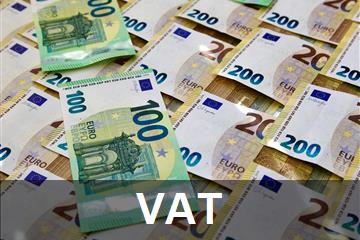
18 set 2024
The Italian Supreme Court's decision in ruling 22700/2024 has reaffirmed the VAT applicability on charges for staff secondment, even when these charges merely cover costs.
This decision aligns with the European Court of Justice's 2020 ruling, which deemed Article 8, paragraph 35 of Law 67/1988, excluding such transactions from VAT, as contrary to EU principles.
The case has been remanded to the lower court to determine if a direct link exists between the service provided and the compensation received.
This ruling highlights the ongoing confusion among operators due to inconsistent judicial interpretations and underscores the need for clear guidelines from tax authorities.
The Italian Supreme Court's recent ruling, 22700/2024, has once again brought to the forefront the issue of VAT applicability on charges related to staff secondment.
This decision underscores that such charges are subject to VAT, even if they only cover the cost, provided there is a reciprocal relationship between the service rendered and the amount received.
This ruling aligns with the European Court of Justice's decision from March 11, 2020, which declared Article 8, paragraph 35 of Law 67/1988, excluding staff secondment from VAT, as incompatible with EU principles.
The Supreme Court has remanded the case to the lower court to ascertain whether a direct link exists between the service provided and the compensation, irrespective of the invoiced amount.
The case in question arose from a tax assessment that deemed the VAT paid by a company on invoices from another group company for staff secondment services as non-deductible.
The dispute centered on the assertion that the service provided by the "seconding" company was excluded from VAT under Article 8, paragraph 35 of Law 67/1988, which states that staff secondment reimbursed at cost is not VAT-relevant.
In siding with the taxpayer, the Supreme Court referenced the European Court of Justice's ruling, which found that the amounts paid by the "seconded" company to the "seconding" company and the secondment itself are interdependent, thus subject to VAT. This interpretation necessitates the disapplication of the national law by the domestic court.
This decision is consistent with previous rulings (e.g., 5601/2021 and 20589/2021), where the Supreme Court also disapplied the national law and remanded cases to lower courts to determine the existence of a reciprocal relationship.
However, in a contrasting decision (16234/2024), the Supreme Court concluded that the staff secondment, reimbursed at cost, was not subject to VAT.
The ongoing inconsistency in judicial interpretations has created confusion among operators, highlighting the urgent need for the tax authorities to provide clear and timely guidelines.
These guidelines should delineate when staff secondment is exempt from VAT and when it is considered a taxable service.
Critical Aspects and Potential Issues:
1. Inconsistent Judicial Interpretations: Different rulings on similar cases create uncertainty.2. Need for Clear Guidelines: Tax authorities must provide explicit instructions to avoid confusion.
3. Compliance Challenges: Companies may struggle to comply with VAT regulations due to ambiguous legal interpretations.
Common Pitfalls and Errors:
1. Misinterpretation of Law: Misunderstanding the conditions under which VAT is applicable.2. Inadequate Documentation: Failing to properly document the reciprocal nature of services and payments.
3. Overlooking EU Directives: Ignoring the precedence of EU law over national legislation.
Suggestions and Useful Indications:
1. Seek Professional Advice: Companies should consult tax professionals to navigate complex VAT regulations.2. Stay Informed: Keep abreast of the latest judicial rulings and tax authority guidelines.
3. Document Thoroughly: Ensure all transactions are well-documented to demonstrate compliance with VAT requirements.

